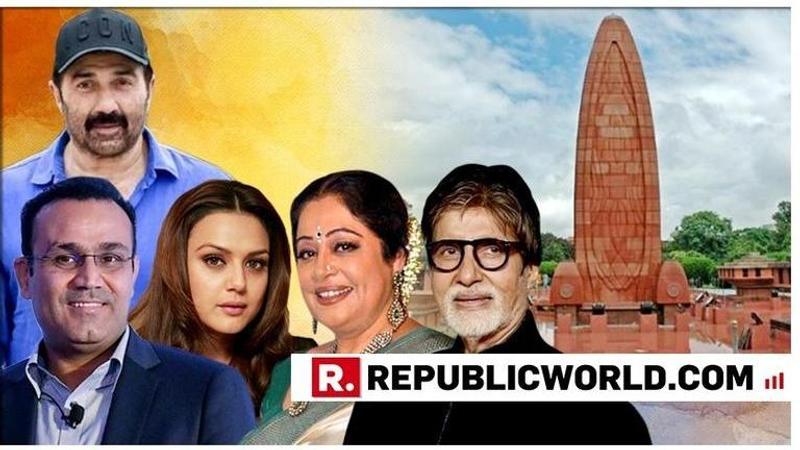Published 17:52 IST, April 13th 2019
'Tribute to the brave martyrs': Amitabh Bachchan, Virender Sehwag, Kirron Kher, Preity Zinta, others commemorate Jallianwala Bagh massacre on its centenary
Indian fought a hard battle over many years against the British for its freedom and the number of people who sacrificed their lives for the mission is humongous. 'Tribute to the brave martyrs': Amitabh Bachchan, Virender Sehwag, Kirron Kher, Preity Zinta, others remember Jallianwala Bagh massacre on its centenary.

Indian fought a hard battle over many years against the British for its freedom and the number of people who sacrificed their lives for the mission is humongous. One such event that is a symbol of this sacrifice is the Jallianwala Bagh massacre, a chapter without which the freedom story is incomplete. As the horrific incident completes 100 years, celebrities all across fields remembered it while honouring the bravehearts who laid their lives for the country.
Prime Minister Narendra Modi, Vice-President Venkaiah Naidu and many other politicians had commemorated the historic day on its centenary.
Even celebrities from the film and sports industries shared posts on Twitter in memory of the Jallianwala Bagh massacre. Amitabh Bachchan, Kirron Kher, Bhumi Pednekar, Sunny Deol, Pretiy Zinta, Suniel Shetty, Atul Kasbekar, Madhur Bhandarkar and cricketers like Virender Sehwag, Harbhajan Singh and Mohammad Kaif, while calling it 'horrific', 'merciless', 'heart wrenching', saluted and paid tributes to the martyrs and how even the massacre didn't dampen the spirits of the citizens in the 'resolve to rid India of British Colonial rule.'
Here are their reactions:
Here's what happened 100 years ago on April 13, 1919:
Jallianwala Bagh massacre was one of deadliest attacks in the history of the world and also marked a turning point in India's freedom struggle. At the Jallianwala Bagh, which is a garden spread across 6 to 7 acres in Amritsar in Punjab, a large gathering of 15,000-20,000 people with a majority of Sikhs, had gathered to celebrate Baisakhi, the Punjabi harvest festival. They had also gathered to revolt against the repressive Rowlatt Act that led to stricter control of the press, arrests without warrant and indefinite detention without trial. They also came together in solidarity to condemn the arrest and deportation of two national leaders - Satya Pal and Dr Saifuddin Kitchlew. The Baisakhi pilgrims had no idea on what they were about to face.
Around 50 soldiers of the British Indian Army marched into the garden space, commanded by Colonel Reginald Dyer and sealed the exits. On his orders, the troops indiscriminately fired on the group of gathered civilians for about 10 minutes till the ammunition ran short. Unable to escape, people tried to climb the walls of the park but failed. Many jumped in the only well inside the garden to save themselves from the bullets.
Colonial-era records show about 400 people died in the Jallianwala Bagh Massacre when soldiers opened fire on men, women and children in an enclosed area, but Indian figures put the toll at closer to 1,000. 1,650 rounds of bullets were used in the attack, the reports suggest.
Updated 18:52 IST, April 13th 2019




